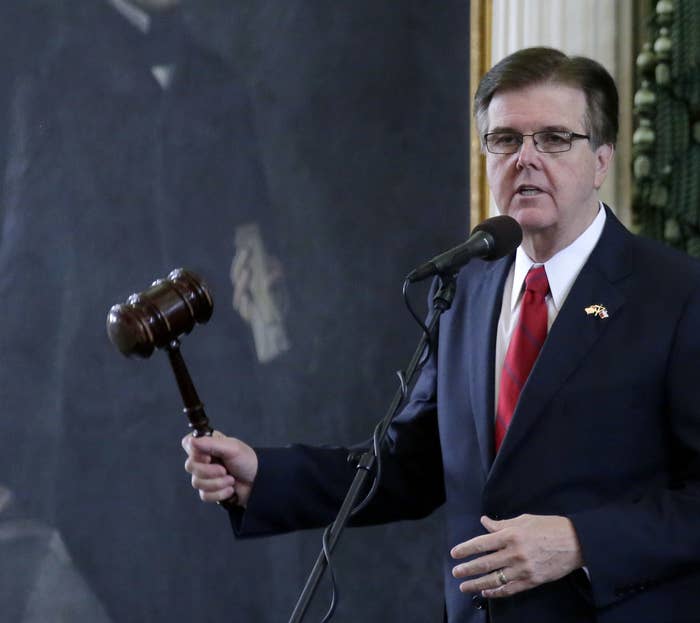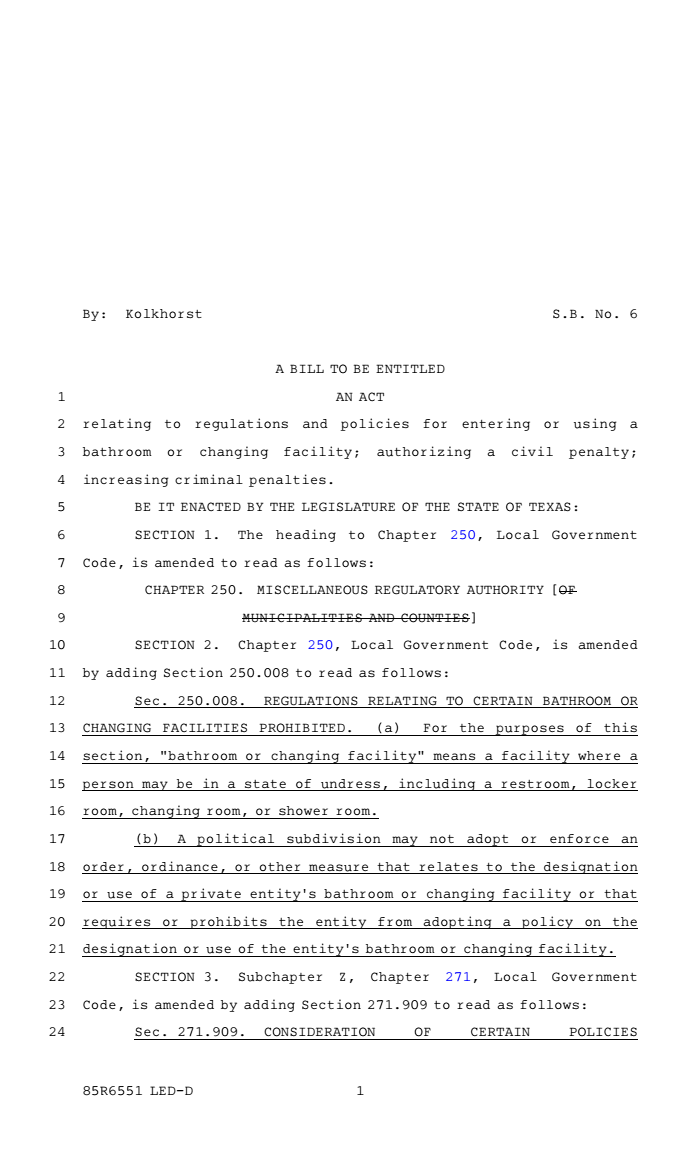
Lawmakers in Texas, Kentucky, and a handful of other states have filed bills in recent weeks that would ban transgender people from certain restrooms that match their gender identity, building on a trend of legislation the past few years that claims to protect women and girls.
And once again, the bills have raised hackles among LGBT advocates who are willing to sue the states that pass such laws, alleging violations of constitutional and civil rights.
The most prominent of the measures was announced in Texas on Thursday by Lt. Gov. Dan Patrick, who said a new bill would promote “common sense, common decency, and public safety.”
Texas has been at the vanguard of legal challenges to Obama administration policies that protect transgender students and patients, and the Republican-dominated capital appears eager to take the next step. In some ways, it could become this year's North Carolina, which created a furor when it banned many transgender people from restrooms in state-run facilities — and the Texas bill expand on those rules.
Patrick said the bill blocked "policies that allow men in ladies rooms.”
Senate Bill 6, which will be sponsored by Sen. Lois Kolkhorst, would ban transgender people from single-sex restrooms in government buildings. It would apply in facilities run by the state and its subdivisions by restricting restrooms to those with with a corresponding sex marker on their birth certificate.
Next, Kolkhorst said at a press conference with Patrick, it would prohibit transgender students from using facilities that match their gender in public schools. Local boards that fail to comply would face a civil penalty, she said.
Further, local jurisdictions would be blocked from enacting or enforcing their own nondiscrimination rules that let people use public facilities in accordance with their gender identity.
"Are we going to have bathroom police?" she said to a question about how the rules could be enforced. "No." Violations could be reported to local authorities, she answered.
Asked to explain how the provision would work for cities, Patrick seemed to deny the very existence of transgender people, saying the bill “will stop local governments from passing policies that allow men in ladies rooms.”
The rules would affect several Texas cities, including Austin and Dallas, which have LGBT nondiscrimination ordinances on the books.
Kolkhorst and Patrick argued the measure protects women and girls from public safety threats, yet offered no examples of transgender nondiscrimination policies actually facilitating harm. However, they spoke about how federal guidance to accommodate transgender students affronts their sense of decency.
Several other states have introduced bills for this year’s legislative session, notably Kentucky — where Republicans, who have led legislation on this issue around the country, control roughly two-thirds majorities in both legislative chambers.
Yet there, it was Democratic Rep. Rick Nelson who filed a bill that attempts to ban transgender people from bathrooms matching their gender in government facilities and public schools. Kentucky's Republican governor, however, recently said legislation on the topic is unnecessary.
A measure in South Carolina, meanwhile, would let local governments ban transgender people from public bathrooms matching their gender. It also would ban local nondiscrimination laws that allow individuals to enter multiple-user bathrooms regardless of the sex on their birth certificate.
Bills in Virginia and Washington State are particular long shots, given that both states have Democratic governors who could strike the measures with a veto.
Virginia’s House Bill 1612 would ban transgender people from government bathrooms that match their gender and require school principals to inform parents if a student asks to be identified by a different gender than their birth sex.
The bill in Washington State would allow facilities to ignore a state nondiscrimination law by banning transgender people from restrooms that correspond with their gender.
The American Civil Liberties Union said Thursday it would consider suing any state that passed a law to ban people transgender from restrooms, saying it would violate the Constitution and civil rights laws.
“If a proposed bill should become law then we will consider every option, including litigation, to protect the trans individuals who will be harmed,” ACLU staff attorney Chase Strangio told BuzzFeed News.
Strangio noted that his group and others successfully stymied similar bathroom bills in past years, while also noting that North Carolina did pass a bathroom law, known as HB2. The ACLU sued the state.

